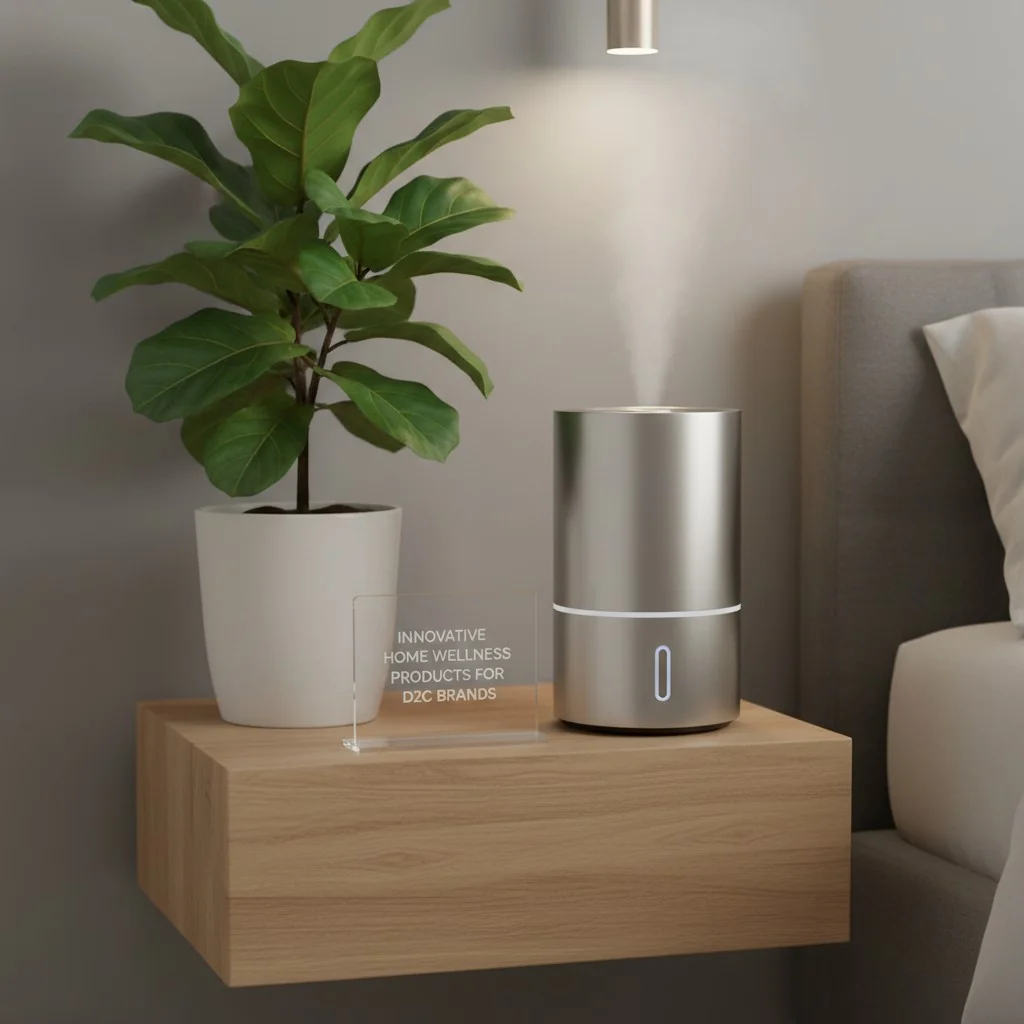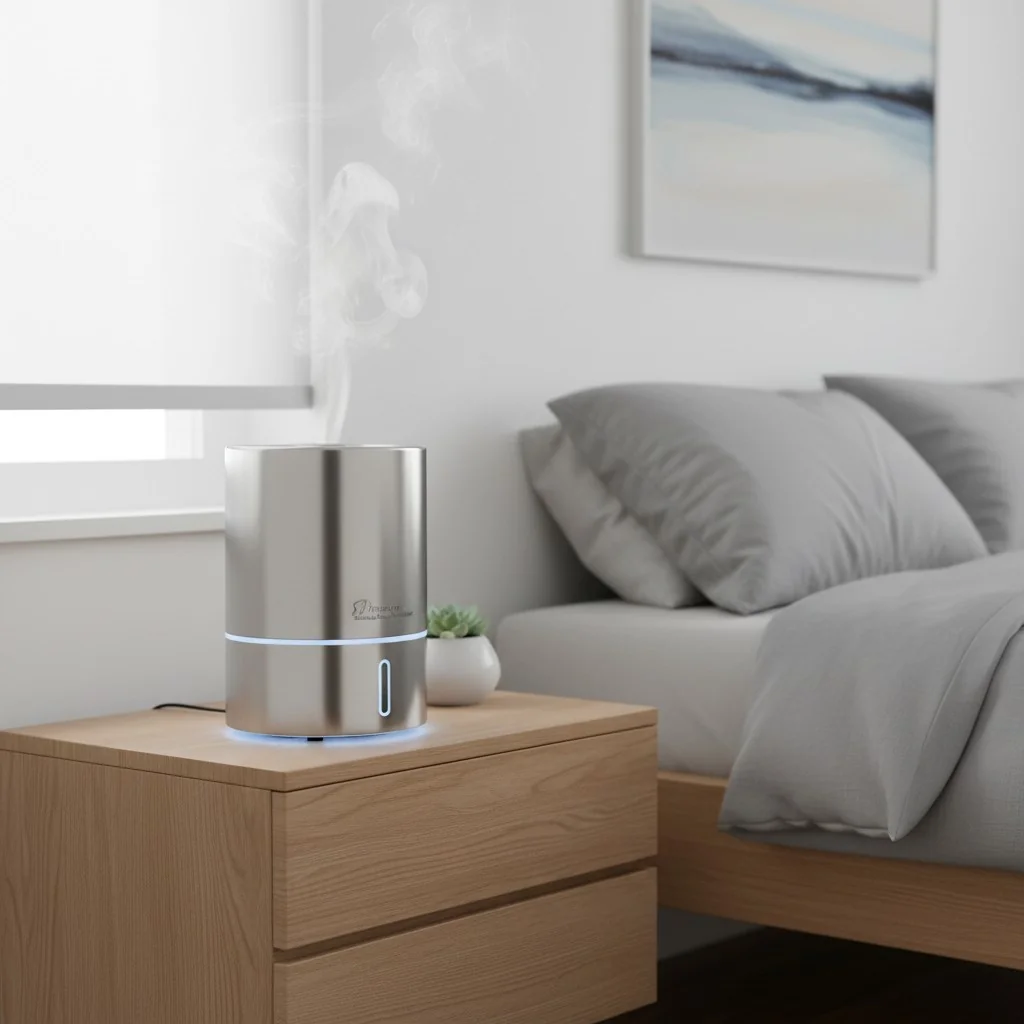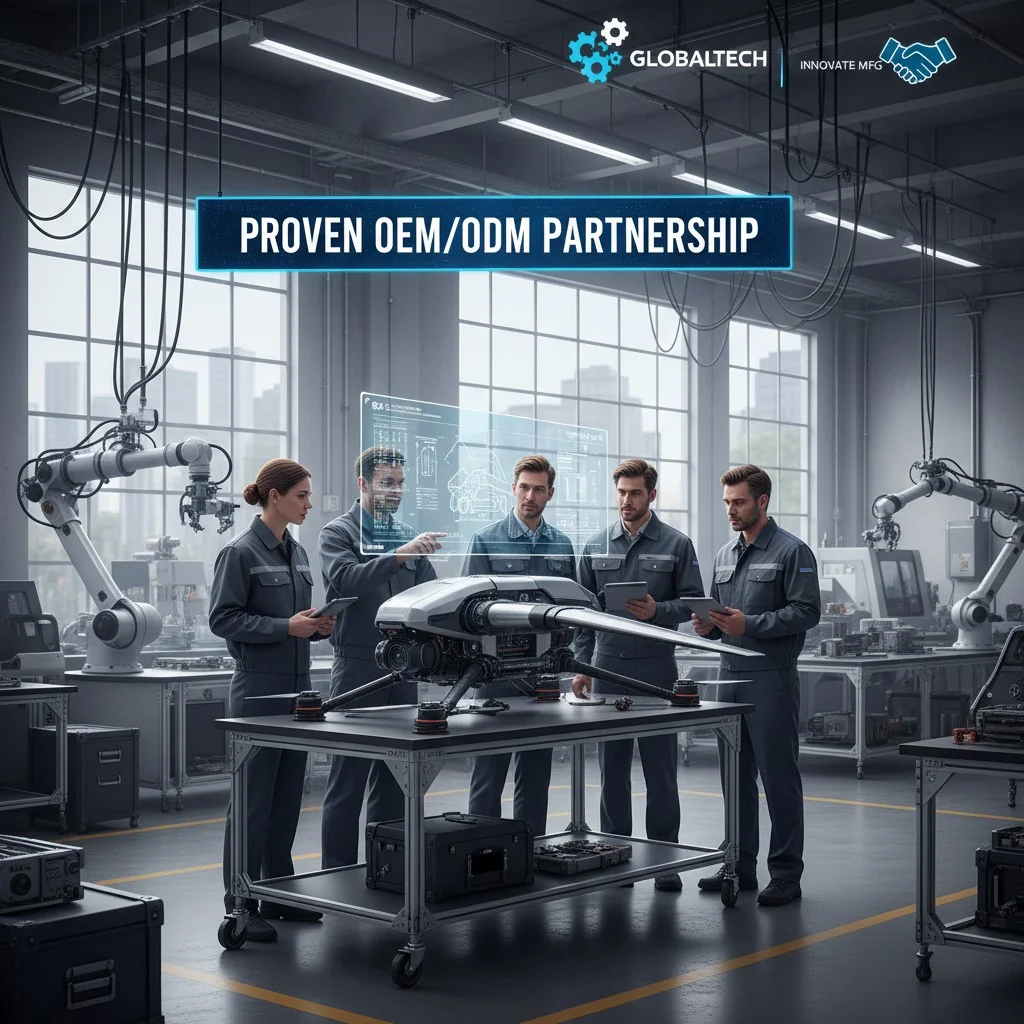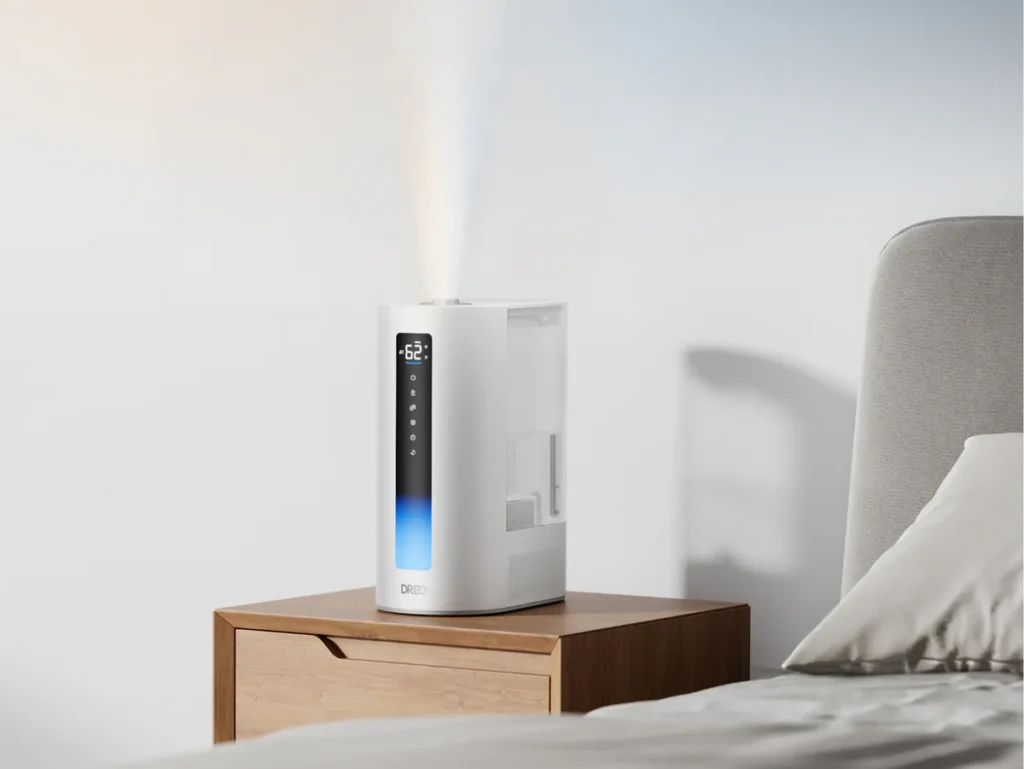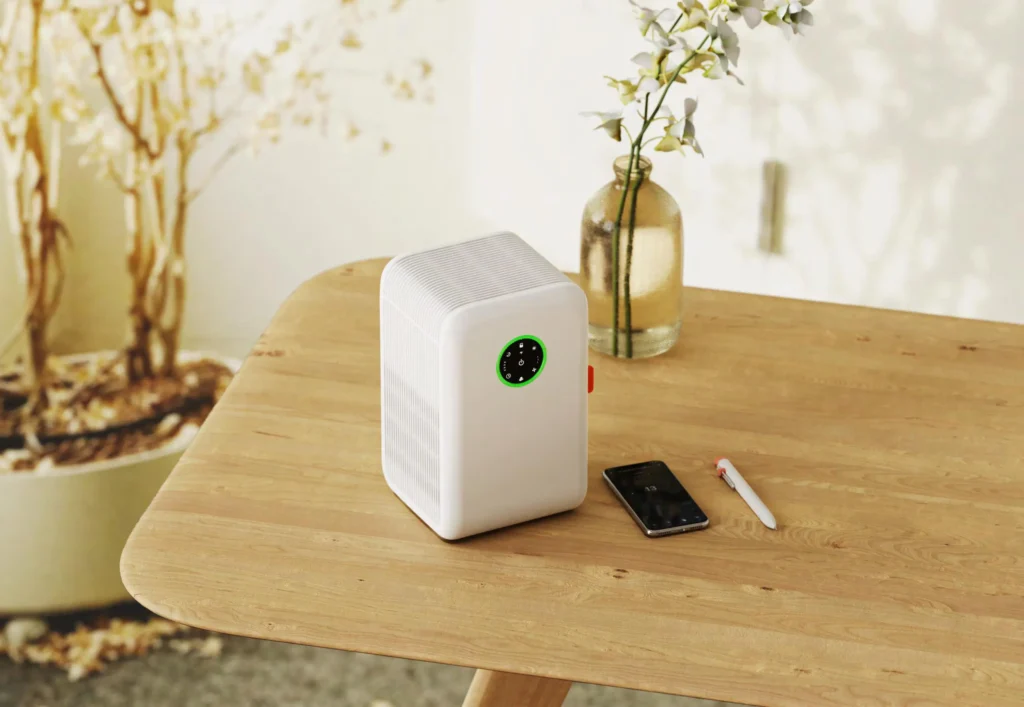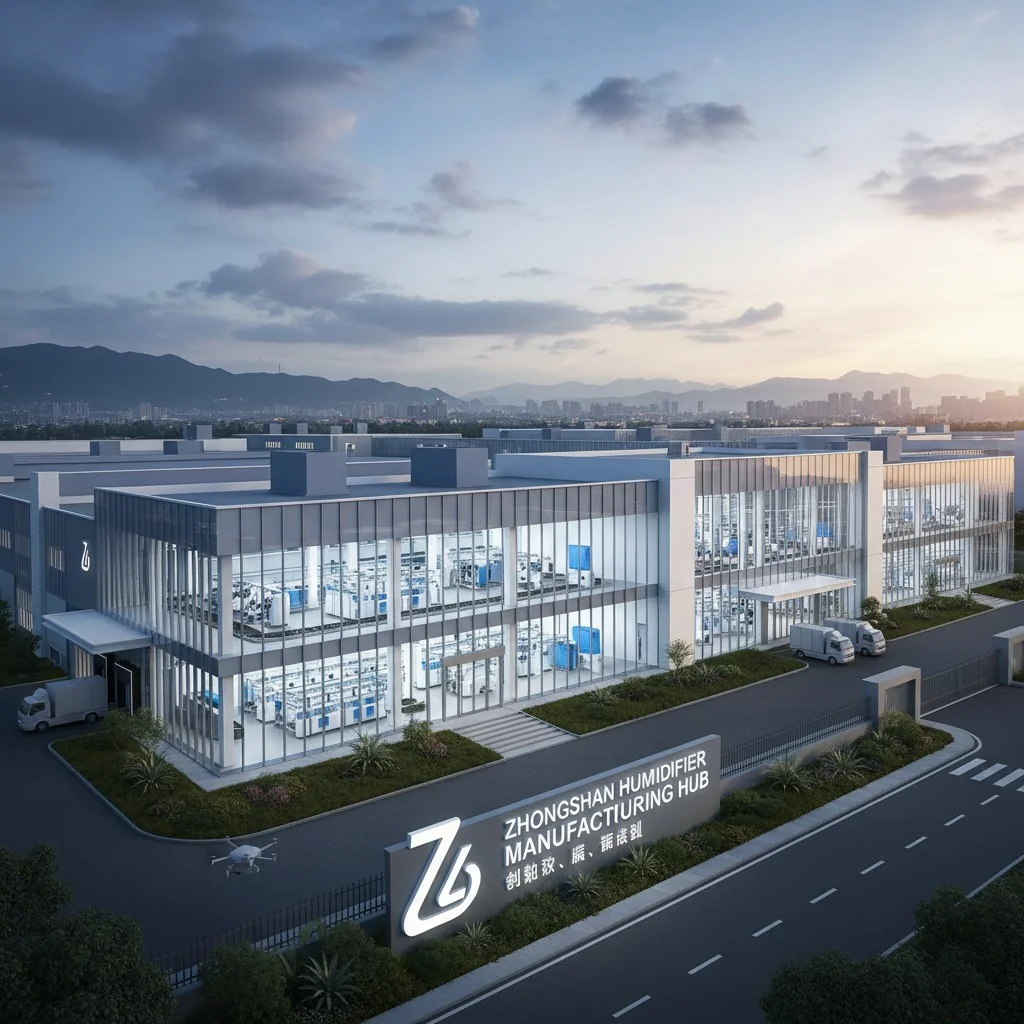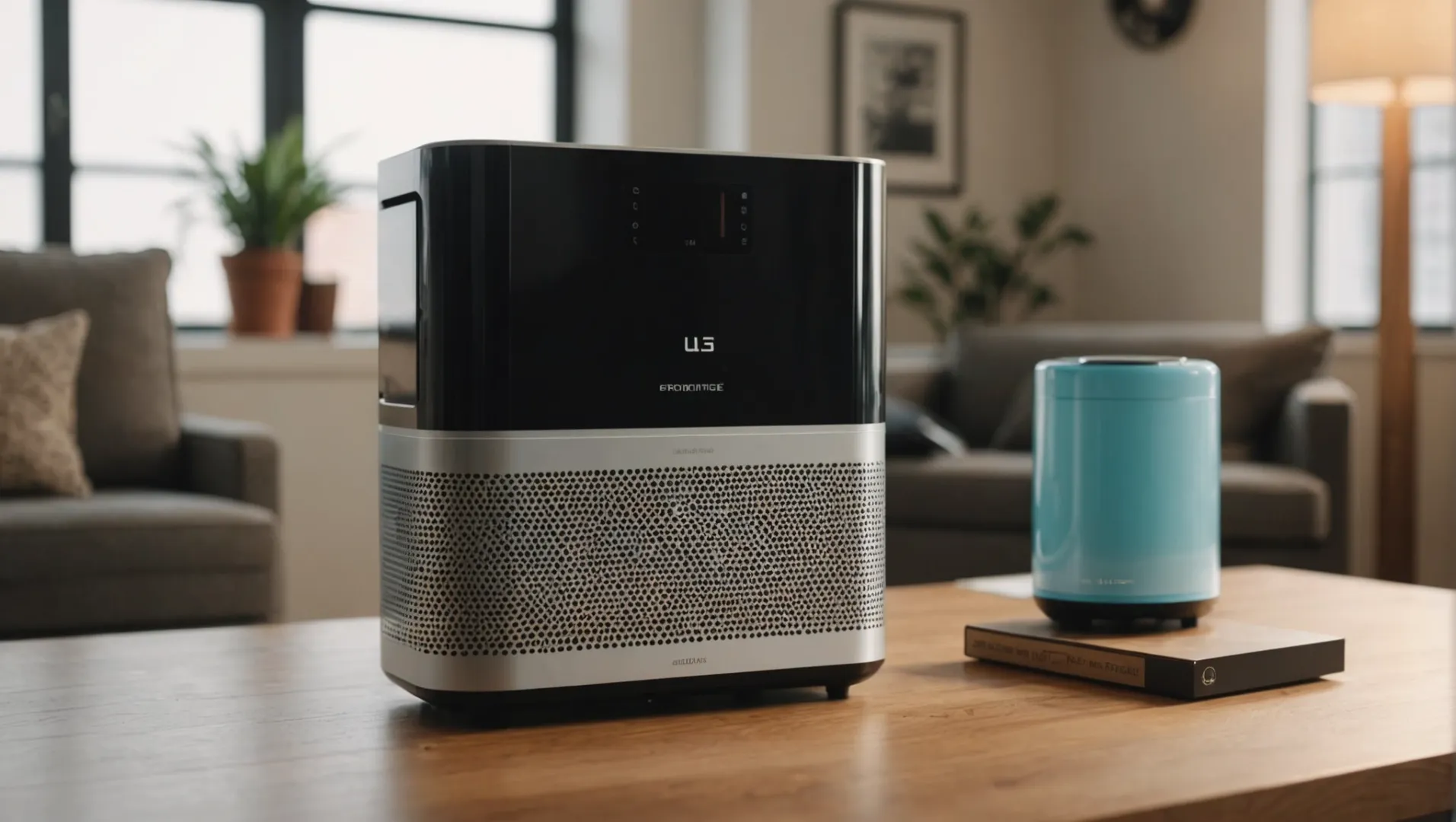
Naviguer dans le monde des purificateurs d'air peut ressembler à un labyrinthe, surtout lorsqu'il s'agit de sécurité et de conformité !
Pour vous assurer que le fabricant d'un purificateur d'air respecte les normes américaines, vérifiez les certifications suivantes UL, FCCet CARB l'enregistrement. Collaborer avec des fournisseurs expérimentés qui connaissent bien ces exigences afin de garantir une mise en conformité rapide et rentable.
Mais comprendre les principes de base n'est qu'un début ! Nous allons nous pencher sur les certifications spécifiques et découvrir comment vous pouvez choisir en toute confiance des purificateurs d'air qui répondent réellement aux normes américaines rigoureuses.
La certification UL garantit la sécurité des purificateurs d'air aux États-Unis.Vrai
La certification UL confirme la conformité aux normes de sécurité, réduisant ainsi les risques.
Quelles sont les principales certifications des purificateurs d'air aux États-Unis ?
Comprendre les certifications des purificateurs d'air est essentiel pour les fabricants qui souhaitent pénétrer le marché américain.
Aux États-Unis, les purificateurs d'air doivent obtenir des certifications telles que UL les tests de sécurité, FCC la conformité, et CARB pour répondre aux normes fédérales et aux exigences du marché.
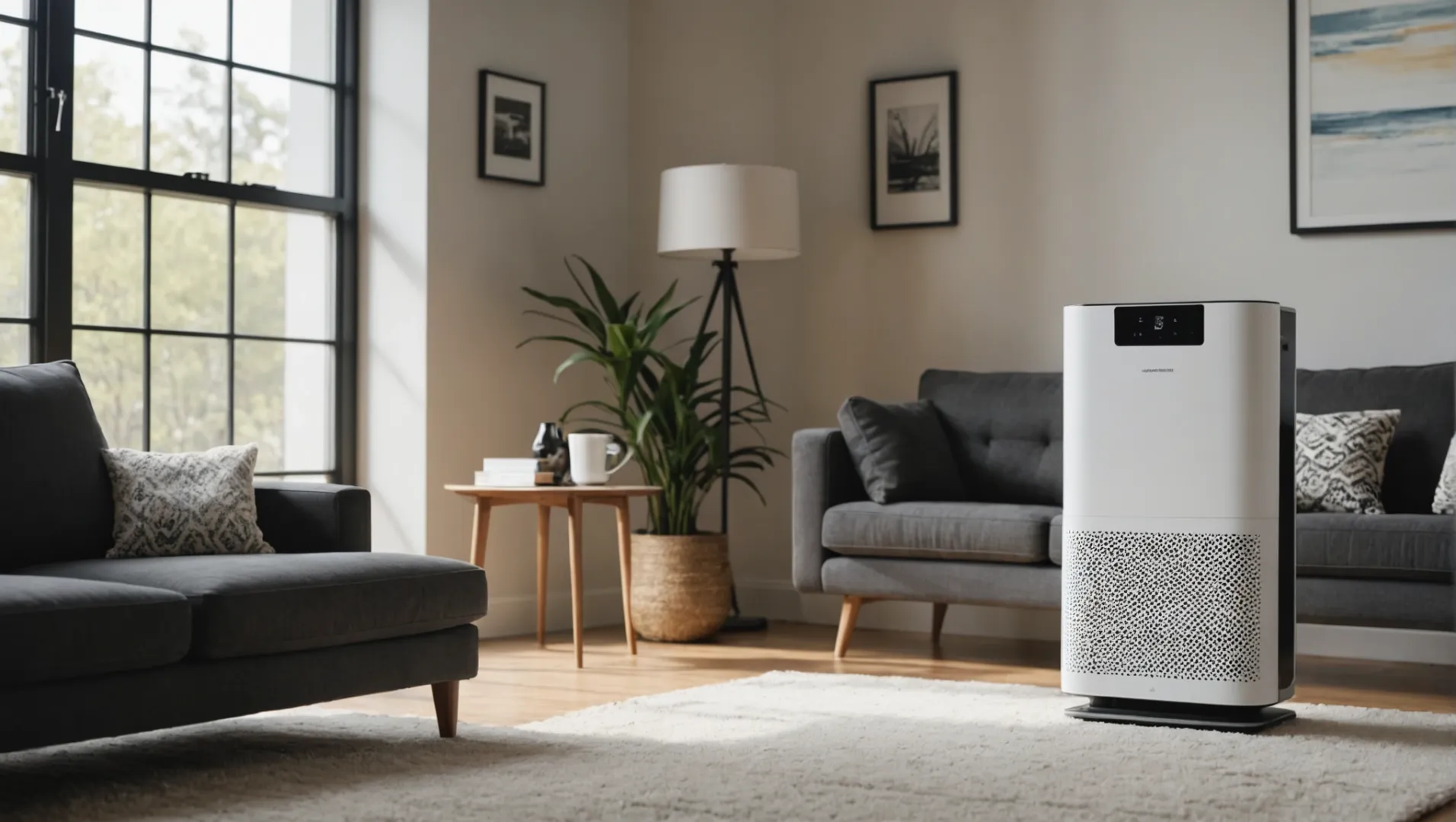
Comprendre les exigences en matière de certification
Les certifications des purificateurs d'air font partie intégrante de la conformité et de l'acceptation du marché aux États-Unis. Les principales certifications sont les suivantes :
-
UL Essais de sécurité : Cela permet de s'assurer que l'appareil répond à des normes de sécurité strictes. Les fabricants peuvent effectuer ces tests dans des laboratoires certifiés tels que ULIntertek, TUV ou SGS. Les coûts varient, mais les délais sont généralement de 8 à 10 semaines.
-
FCC Conformité : Les purificateurs d'air doivent satisfaire aux exigences de la Federal Communications Commission (FCC), crucial pour les appareils émettant des signaux électromagnétiques.
-
CARB Inscription : Le Conseil californien des ressources en air (CARB) est obligatoire pour vendre des purificateurs d'air en Californie, afin de garantir de faibles niveaux d'émission d'ozone.
Certifications supplémentaires
Au-delà des principes de base, les purificateurs d'air peuvent également nécessiter :
-
DOE Test : Le Département de l'énergie (DOE) évalue l'efficacité énergétique, ce qui a un impact sur la rentabilité et l'empreinte environnementale.
-
AHAM Vérification : Certification de l'Association of Home Appliance Manufacturers (AHAM) indique le taux d'émission d'air pur (CADR), guidant les consommateurs sur l'efficacité.
-
Certification Energy Star : Reconnu par l'Agence de protection de l'environnement (EPA), cela signifie une efficacité énergétique supérieure.
| Certification | Objectif | Organisme de contrôle |
|---|---|---|
| UL | Sécurité | ULIntertek |
| FCC | Conformité électromagnétique | FCC |
| CARB | Émission d'ozone | CARB |
| DOE | Efficacité énergétique | DOE |
| AHAM | Performance | AHAM |
| Energy Star | Efficacité énergétique | EPA |
Travailler avec des fournisseurs expérimentés
La collaboration avec des fournisseurs qui ont une connaissance approfondie des normes américaines peut rationaliser le processus de certification. Les fournisseurs expérimentés possèdent souvent leurs propres CNAS-pour les tests préliminaires, ce qui accélère la certification par une tierce partie. Des entreprises comme Hisoair1 s'enorgueillit de plus de 20 ans d'expertise en matière d'alignement sur les normes du marché américain.
Pour garantir une conformité totale, les fabricants doivent également envisager de concevoir des manuels et des emballages qui respectent les normes suivantes UL des normes. Le partenariat avec des fournisseurs expérimentés facilite non seulement la navigation dans les processus de certification, mais garantit également le respect des normes américaines en matière de sécurité et de qualité.
Les tests de sécurité UL sont obligatoires pour les purificateurs d'air aux États-Unis.Faux
Les tests de sécurité UL ne sont pas obligatoires, mais ils garantissent la conformité aux normes de sécurité.
L'enregistrement auprès du CARB est nécessaire pour vendre des purificateurs d'air en Californie.Vrai
Le CARB garantit de faibles émissions d'ozone pour les purificateurs d'air vendus en Californie.
Comment les fournisseurs expérimentés peuvent-ils contribuer à la mise en conformité ?
Tirer parti de l'expertise de fournisseurs chevronnés permet de rationaliser la mise en conformité avec les normes américaines rigoureuses.
Des fournisseurs expérimentés apportent une expertise vitale dans la mise en conformité avec les normes américaines, en donnant des indications sur les certifications et les processus d'essai efficaces, ce qui permet de gagner du temps et d'économiser des coûts.
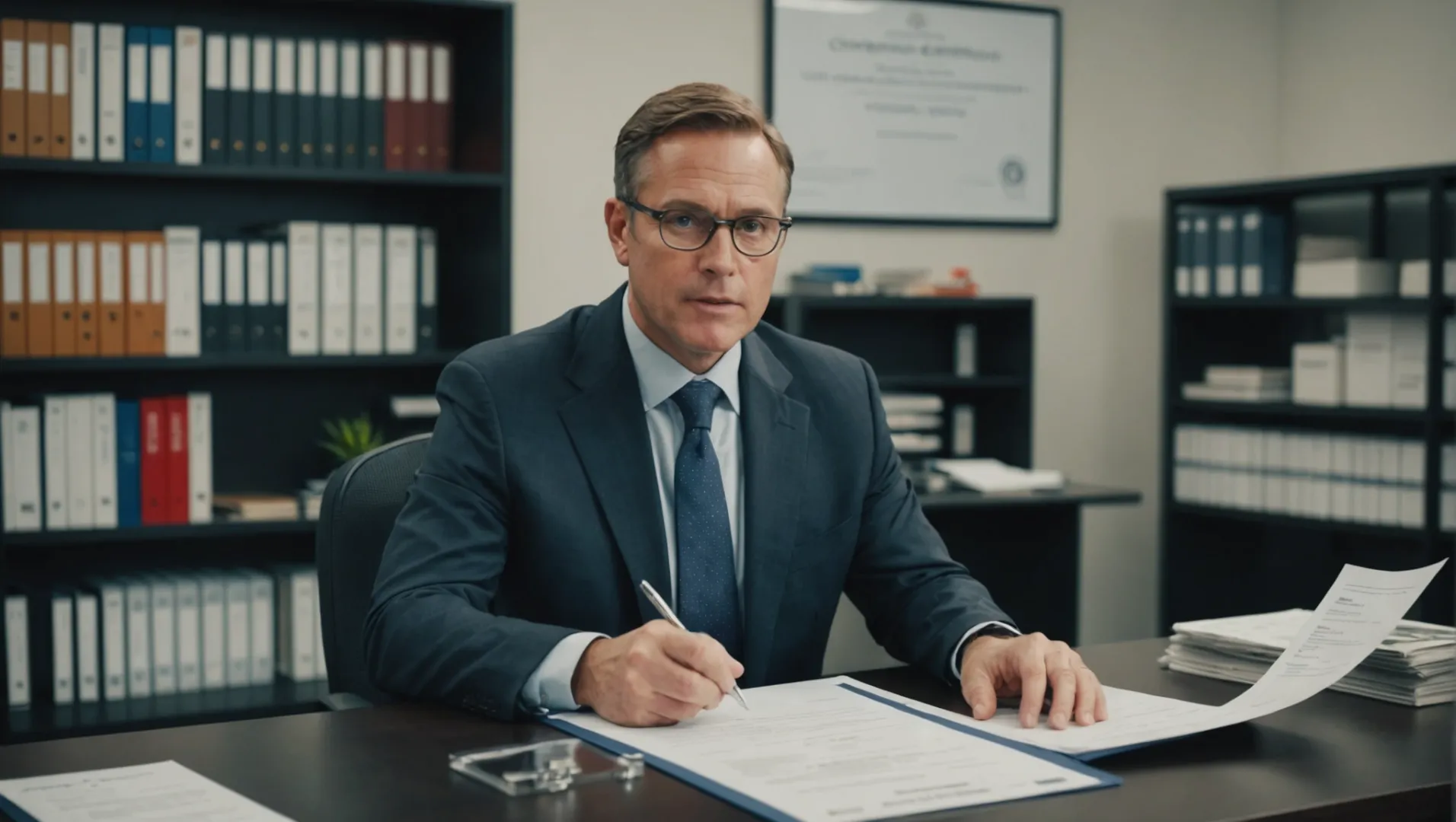
Le rôle des fournisseurs expérimentés en matière de conformité
Naviguer dans le paysage complexe des normes de conformité américaines pour les purificateurs d'air peut être décourageant. Des fournisseurs expérimentés vous apportent une aide précieuse en vous guidant à travers les processus complexes d'obtention des certifications nécessaires. Ces experts connaissent bien exigences réglementaires2 tels que UL les tests de sécurité, FCC les tests, et CARB l'enregistrement. Leur connaissance des nuances de chaque processus de certification permet de réduire considérablement les délais et les coûts.
Rationalisation des processus d'essai
L'un des principaux avantages de travailler avec des fournisseurs chevronnés réside dans les relations qu'ils entretiennent avec des laboratoires d'essai certifiés. Ils ont souvent des partenariats avec des laboratoires tels que ULIntertek, TUV et SGS, ce qui leur permet d'accélérer le processus de test. Certains fabricants possèdent même leur propre CNAS-Cette étape permet non seulement d'accélérer le délai de certification, mais aussi de minimiser les erreurs potentielles, ce qui garantit un cheminement plus fluide vers la conformité. Cette étape permet non seulement d'accélérer le délai de certification, mais aussi de minimiser les erreurs potentielles, garantissant ainsi une mise en conformité plus aisée.
Des solutions rentables
Les fournisseurs expérimentés proposent souvent des solutions rentables en recommandant les stratégies d'essai les plus efficaces. Ils peuvent donner des indications sur le choix des laboratoires en fonction des coûts et des délais prévus. Par exemple, si UL peut offrir un tarif compétitif pour les tests de sécurité, d'autres laboratoires peuvent offrir des délais d'exécution plus rapides pour les tests de sécurité, d'autres laboratoires peuvent offrir des délais d'exécution plus courts pour les tests de sécurité. FCC des tests. Ces informations permettent aux entreprises d'allouer les ressources de manière efficace et d'éviter les dépenses inutiles.
Conception de produits conformes
Au-delà des essais, les fournisseurs expérimentés aident à concevoir des produits qui répondent intrinsèquement aux normes américaines. Ils guident les fabricants dans l'élaboration de manuels d'utilisation et d'emballages qui respectent les normes suivantes UL un élément essentiel, mais souvent négligé, de la conformité. En abordant ces éléments dès le début de la phase de conception, les fournisseurs contribuent à éviter des retards à un stade ultérieur du processus.
Construire des partenariats stratégiques
Choisir de travailler avec un fournisseur qui a une grande expérience en matière d'OEM/ODM, comme Hisoair, peut changer la donne. Avec plus de 20 ans d'expérience dans la fabrication de purificateurs d'air pour le marché américain, Hisoair apporte une mine de connaissances et des stratégies éprouvées pour s'assurer que vos produits répondent à toutes les normes nécessaires. Leur expertise en matière de navigation réglementaire3 et la conception des produits peuvent grandement améliorer votre capacité à entrer sur le marché américain et à y être compétitif.
Les fournisseurs expérimentés réduisent les coûts de mise en conformité de 30%.Vrai
Les fournisseurs utilisent des stratégies efficaces et des partenariats de laboratoire pour réduire les coûts.
Tous les fournisseurs expérimentés disposent de laboratoires accrédités par le CNAS.Faux
Tous les fournisseurs ne possèdent pas de laboratoires du CNAS ; certains font appel à des laboratoires tiers.
Pourquoi la UL Les tests de sécurité sont-ils essentiels pour les purificateurs d'air ?
S'assurer que votre purificateur d'air est UL garantit la sécurité et la fiabilité pour les consommateurs américains.
UL Les tests de sécurité pour les purificateurs d'air sont cruciaux car ils confirment que le produit répond à des normes de sécurité rigoureuses, minimisant ainsi les risques de dangers électriques ou de dysfonctionnements. Cette certification garantit aux consommateurs que l'appareil fonctionne de manière sûre et efficace dans diverses conditions.
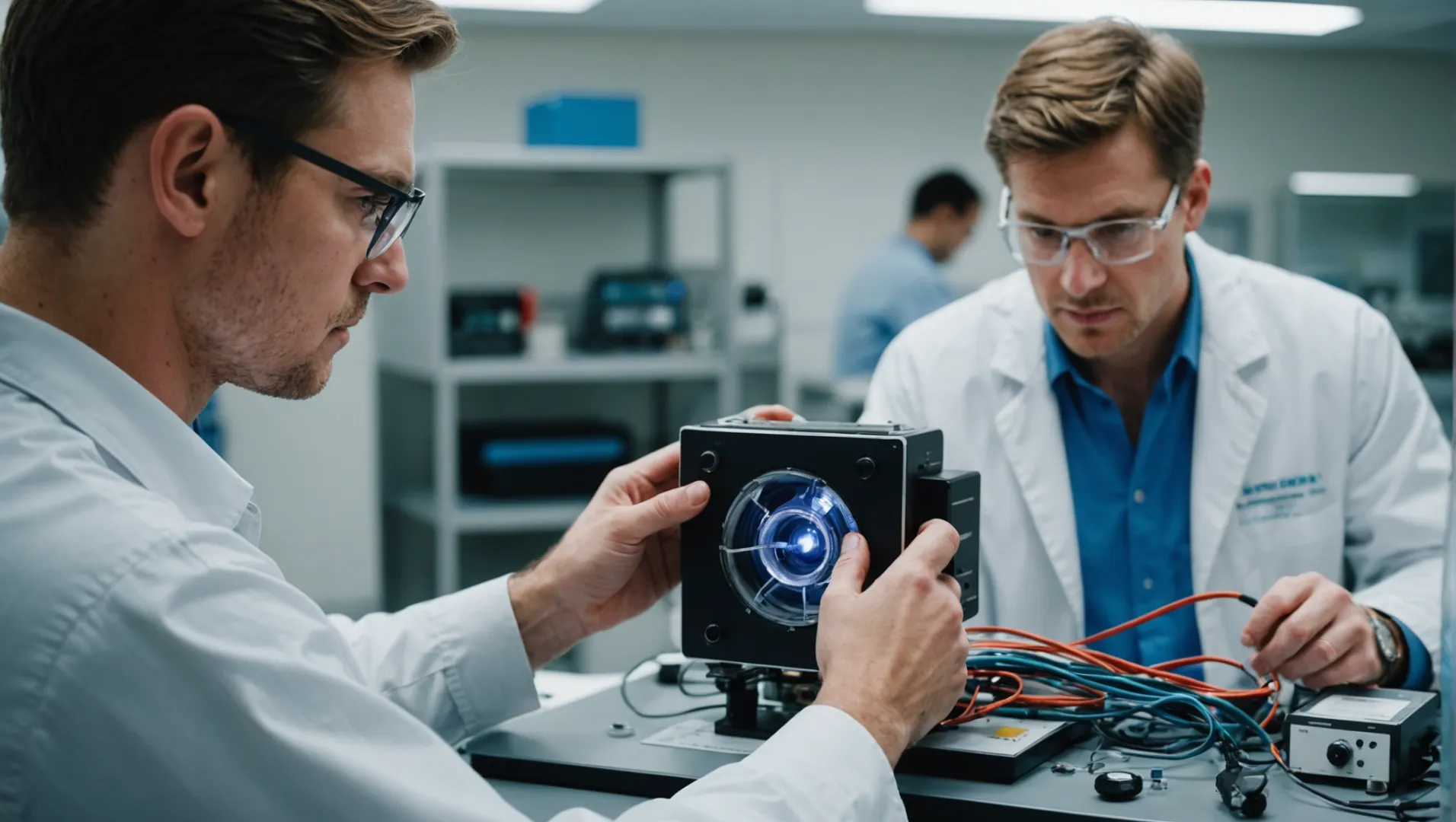
Comprendre UL Certification
ULou Underwriters Laboratories, est une organisation mondialement reconnue qui se consacre à la promotion de la sécurité par le biais de normes d'essai rigoureuses. Pour les purificateurs d'air, UL essais de sécurité4 se concentre sur l'évaluation de la sécurité électrique et de la sécurité incendie, afin de s'assurer que les appareils ne présentent pas de risques pour les utilisateurs. Ce test comprend une série de vérifications, notamment des évaluations des composants électriques, de l'inflammabilité des matériaux et de la construction générale.
Le processus de test
Les UL Le processus d'essai est minutieux et prend du temps ; il s'étend généralement sur 8 à 10 semaines. Il comporte de multiples étapes, telles que
- Évaluation initiale : Déterminer si la conception du produit est conforme aux normes de sécurité.
- Test : Effectuer des tests rigoureux sur des prototypes afin de simuler une utilisation réelle.
- Certification : Délivrance d'un UL si le produit a passé tous les tests avec succès.
Ces étapes sont réalisées dans des laboratoires spécialisés comme Intertek ou TUV, dont les délais et les coûts sont similaires.
Importance de la UL Certification
Avoir un UL sur un purificateur d'air est une garantie de qualité pour les consommateurs. Il signifie que le produit a été testé et vérifié de manière indépendante et qu'il répond à des critères de sécurité spécifiques. C'est un élément essentiel pour la confiance des consommateurs5Il s'agit d'une garantie de fonctionnement sûr et efficace de l'appareil.
En outre, UL La certification peut faciliter l'entrée sur le marché américain, car elle est souvent une condition préalable à l'obtention d'autres autorisations réglementaires telles que l'autorisation de mise sur le marché. FCC ou DOE test.
Travailler avec des fournisseurs expérimentés
La collaboration avec des fournisseurs expérimentés dans les normes américaines peut rationaliser le processus de certification. Ces fournisseurs ont souvent une connaissance approfondie des exigences de conformité et peuvent disposer d'installations d'essai internes telles que CNAS laboratoires. Cette capacité permet d'effectuer des tests préalables avant de soumettre les appareils à des laboratoires tiers, ce qui permet de gagner du temps et d'économiser des ressources.
Les fournisseurs comme Hisoair, qui ont plus de vingt ans d'expérience sur le marché américain, peuvent être des partenaires inestimables. Ils aident à concevoir des produits conformes aux normes UL dès le départ, ce qui réduit la nécessité de procéder ultérieurement à des remaniements coûteux.
Garantir une conformité globale
Au-delà UL un purificateur d'air doit également passer d'autres certifications telles que FCC et CARB l'enregistrement. Un partenariat avec un fournisseur expérimenté permet de répondre efficacement à ces exigences supplémentaires.
En résumé, si les UL Les tests de sécurité sont essentiels pour certifier les purificateurs d'air aux États-Unis. Des collaborations stratégiques et une planification globale sont indispensables pour garantir une conformité totale avec toutes les normes nécessaires.
La certification UL garantit la sécurité du purificateur d'air.Vrai
La certification UL confirme que les purificateurs d'air répondent à des normes de sécurité strictes.
Le test UL est facultatif pour les purificateurs d'air américains.Faux
Les tests UL sont essentiels à l'entrée sur le marché et à la confiance des consommateurs aux États-Unis.
Comment vérifier le statut de certification d'un purificateur d'air ?
La vérification de la certification d'un purificateur d'air est essentielle pour garantir sa sécurité et son efficacité.
Pour vérifier le statut de certification d'un purificateur d'air, vérifiez la présence de labels officiels délivrés par des organismes reconnus tels que UL, FCCet CARB. Ces étiquettes attestent de la conformité à des normes strictes en matière de sécurité et de performance, garantissant que le produit est conforme aux réglementations en vigueur.
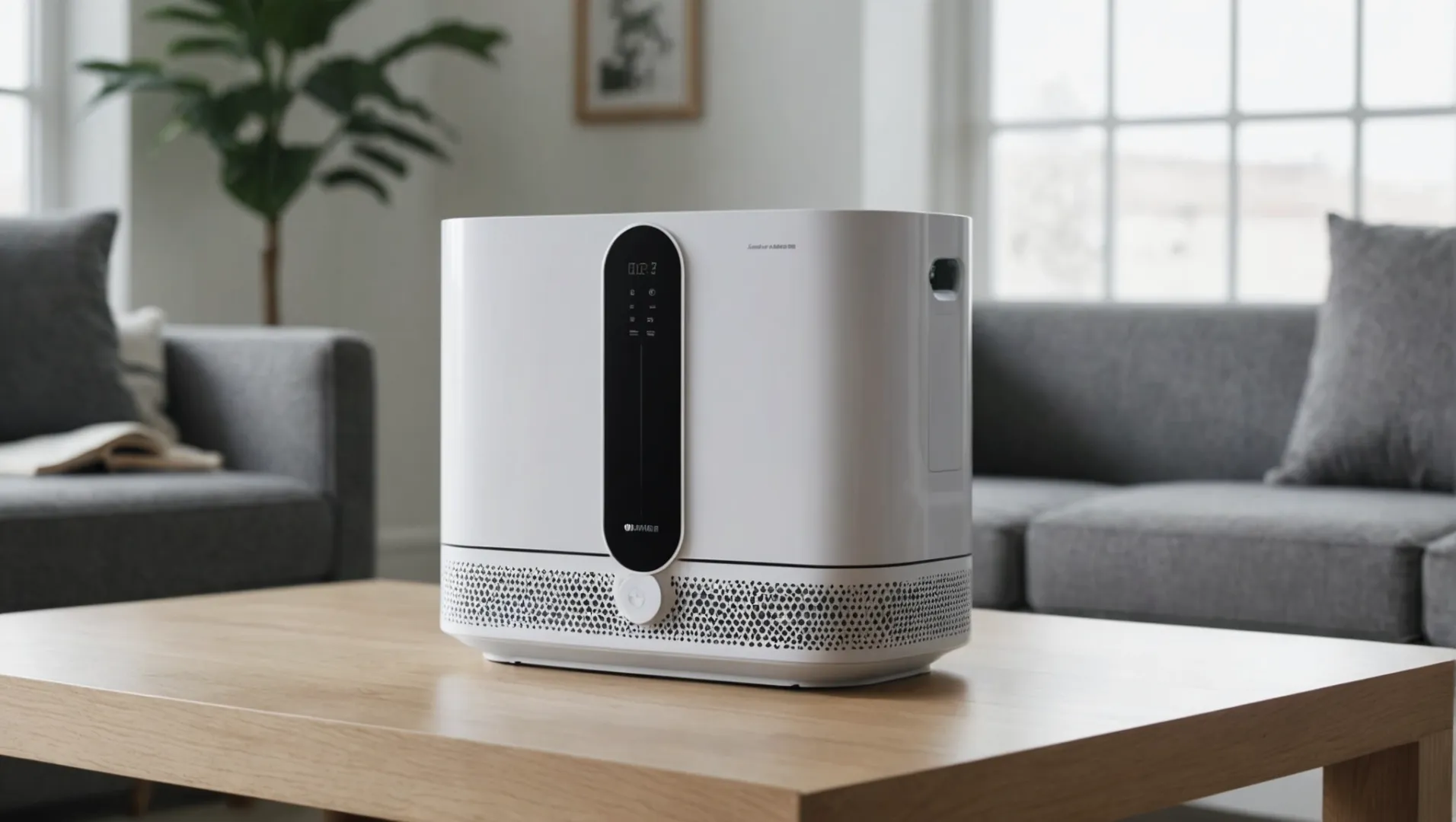
Comprendre les labels de certification
Les labels de certification sont des indicateurs essentiels de la conformité d'un produit aux normes industrielles. Pour les purificateurs d'air, les certifications les plus importantes sont les suivantes UL les tests de sécurité, FCC la conformité, et CARB l'enregistrement. Chaque certification possède un label spécifique qui se trouve sur l'appareil ou dans sa documentation.
- UL Certification: Cherchez le UL qui garantit que le produit a été testé sur le plan de la sécurité électrique et de la sécurité incendie. Ce label est particulièrement important pour les produits largement utilisés dans les maisons et les bureaux.
- FCC Conformité: Le FCC indique que l'appareil est conforme aux normes relatives aux interférences électromagnétiques, ce qui réduit le risque d'interférence avec d'autres appareils électroniques.
- CARB Inscription: Particulièrement important en Californie, CARB certifie que le purificateur d'air respecte les limites d'émission d'ozone.
Utilisation d'outils de vérification en ligne
De nombreux organismes de certification proposent des outils en ligne pour vérifier le statut de certification d'un produit. En voici un exemple, les UL base de données6 vous permet de rechercher un produit par son numéro de modèle afin de confirmer son UL le statut de certification. Cela vous permet de ne pas vous fier uniquement aux étiquettes physiques, qui peuvent parfois être trompeuses.
Partenariat avec des fournisseurs expérimentés
Il est avantageux de s'adresser à des fournisseurs qui ont une bonne connaissance des normes américaines. Les fournisseurs qui ont l'habitude de naviguer dans le paysage de la certification peuvent fournir des documents et des vérifications sur demande. Ils peuvent également vous aider à comprendre les processus de certification complexes et à garantir le respect de toutes les réglementations nécessaires.
Demande de documentation aux fabricants
Les fabricants devraient fournir des documents de certification dans le cadre de leur service. Demandez des rapports détaillés aux laboratoires d'essai qui ont effectué les certifications. Un fabricant réputé n'aura aucun problème à fournir ces documents, ce qui constitue un gage supplémentaire de confiance dans sa conformité.
Vérification des certifications supplémentaires
Outre les principales certifications, il convient de rechercher des titres supplémentaires tels que AHAM ou Energy Star, qui indiquent respectivement des performances supérieures en matière d'épuration de l'air et d'efficacité énergétique. Cela peut être essentiel pour les utilisateurs qui cherchent à réduire l'impact sur l'environnement tout en maintenant une qualité élevée de l'air intérieur.
La certification UL garantit la sécurité électrique des purificateurs d'air.Vrai
La certification UL teste la sécurité électrique et la sécurité incendie, garantissant ainsi une utilisation sûre.
L'enregistrement auprès du CARB n'est pas nécessaire en dehors de la Californie.Faux
L'enregistrement auprès du CARB est essentiel à l'échelle nationale pour garantir de faibles émissions d'ozone.
Conclusion
En comprenant les processus de certification et en vous associant aux bons fournisseurs, vous pouvez vous assurer que votre purificateur d'air est sûr et efficace.
-
Découvrez la vaste expérience d'Hisoair en matière de normes américaines sur les purificateurs d'air.. : Choisissez HisoAir pour une expertise inégalée dans le domaine de la purification de l'air, où notre engagement " Purification maximale, bruit minimal " répond aux normes les plus strictes. ↩
-
Découvrez comment des fournisseurs experts simplifient efficacement les processus de certification.. : Ils aident à respecter les réglementations en matière de santé et de sécurité et améliorent le rendement en maintenant une qualité de produit constante. ↩
-
Découvrez comment des fournisseurs expérimentés aident à la mise en conformité et à l'entrée sur le marché.. : Les détaillants bénéficient grandement de la transparence des prix offerte par les fournisseurs de purificateurs d'air. Elle permet de prendre des décisions en connaissance de cause, de s'aligner sur ... ↩
-
En savoir plus sur le processus de test rigoureux d'UL garantissant la sécurité des purificateurs d'air.. : En particulier pour les purificateurs d'air, la marque UL signifie que l'appareil ne risque pas de s'enflammer ou de provoquer un choc électrique aux personnes ... ↩
-
Comprendre comment la certification rassure les consommateurs sur la sécurité des produits.. : S'appuyer sur nos essais et certifications complets pour valider la qualité et les performances des produits, afin d'introduire les innovations en matière d'appareils électroménagers sur de nouveaux marchés. ↩
-
Vérifiez les certifications UL à l'aide de leur base de données officielle en ligne pour l'authenticité.. : Cette puissante base de données offre des fonctions de recherche robustes et intuitives, des options de recherche et de filtrage avancées et un accès aux informations du guide UL Solutions. ↩


